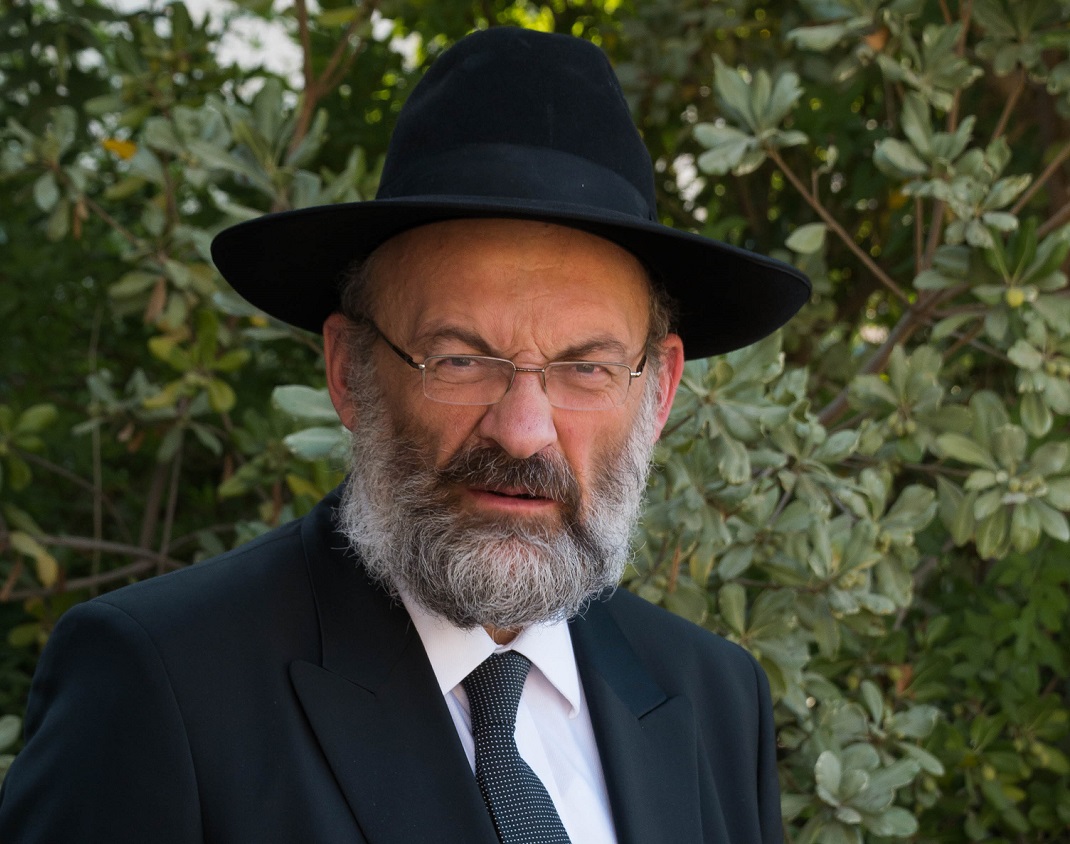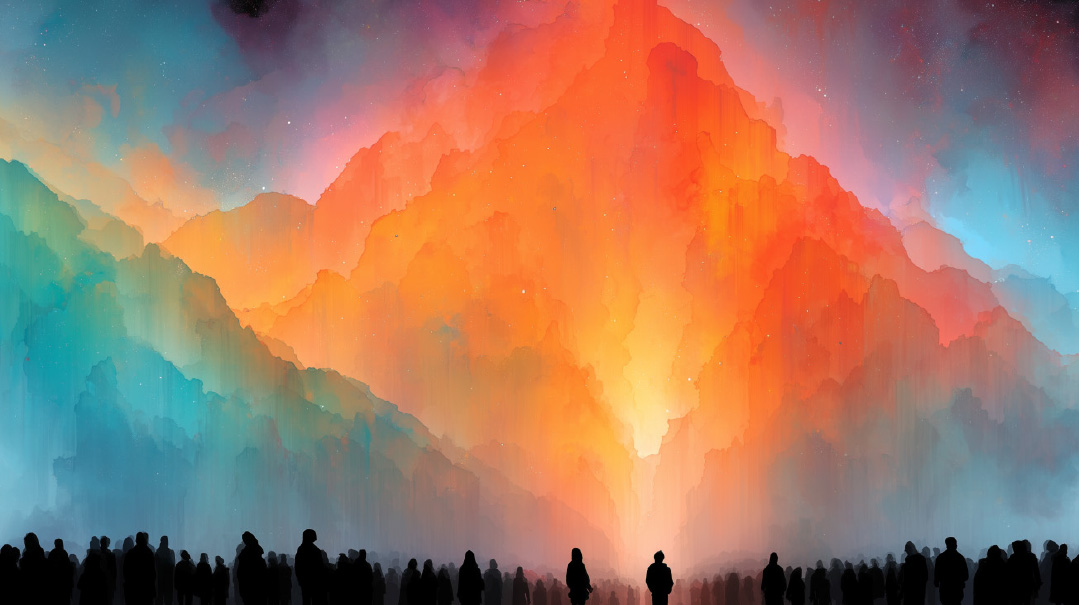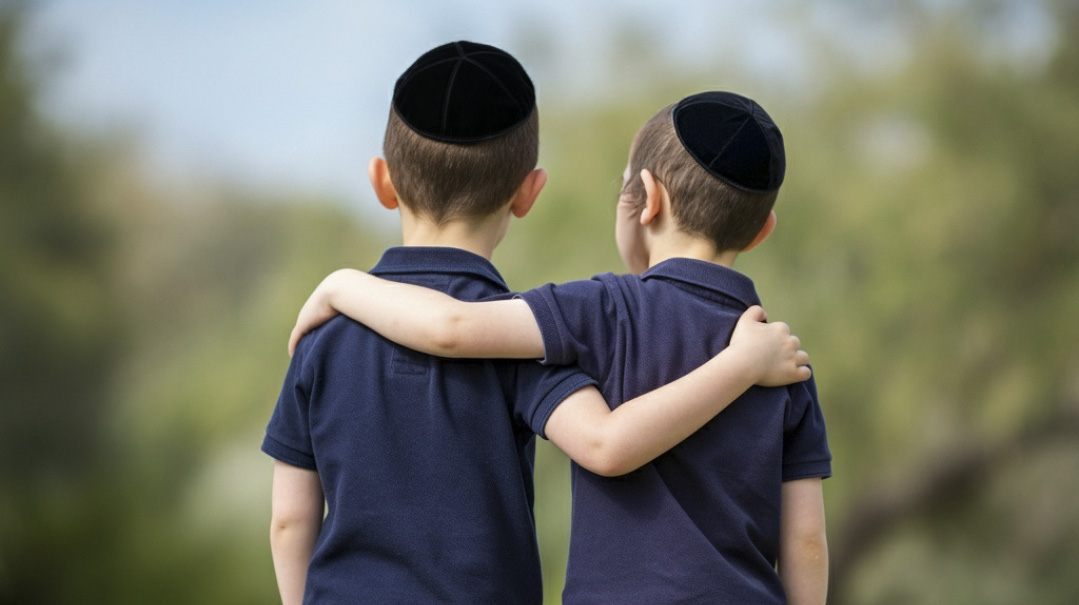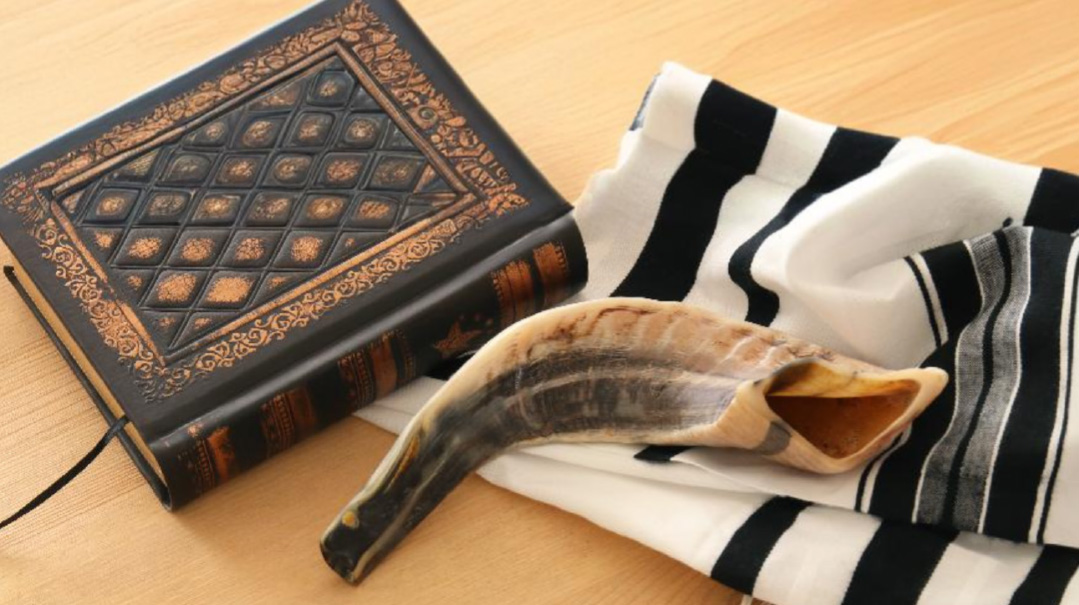Look into the Mirror

This Rosh Hashanah, let the tefillah acquaint you with yourself
ON
Rosh Hashanah, we stand facing a mirror.
Rosh Hashanah is the day of Hashem’s coronation, when His sovereignty is reaffirmed. The tefillos of Rosh Hashanah give us a glimpse into the world of Malchus Shamayim. In that world, we see Hashem’s glory, but we also see ourselves. If we look into the mirror of Malchus Shamayim, we’ll see things about ourselves we never saw before. But as with any mirror, we’ll only see ourselves if we look inside.
I once saw a famous painting by the surrealist Rene Magritte. We see a man from behind, looking into a mirror. But the mirror, instead of showing the man’s reflection facing him, shows him the same view we see of him: his own back.
For many of us, that painting is a good illustration of how we daven on Rosh Hashanah. Rather than focusing on the tefillah itself, we focus on our own performance. All too often, we spend the whole tefillah thinking and fretting about our own davening. Did I have kavanah? Did I remember the peirushim I studied beforehand? Did I feel inspired? Was I emotionally moved?
Instead of finding ourselves in the mirror, we see ourselves looking at the mirror. Like the man in the painting, we see ourselves engaged in tefillah — facing the mirror of Malchus Shamayim — but we don’t peer into it. We don’t experience the wondrous journey of the tefillah, and we learn nothing about ourselves.
Our preoccupation with our own performance also produces enormous pressure. How did I do? Will this tefillah win me a good year? Maybe I should go back and repeat that section… That pressure makes it nearly impossible to daven properly. Tefillah should be serious and earnest — but not pressurized.
We have to understand that the tefillah of Rosh Hashanah isn’t an obstacle course. There are no walls to break through, no chasms to leap over. There are no judges scrutinizing our performance. The tefillah is a magnificent glimpse into the world of Malchus Shamayim. We have to relax, stop critiquing ourselves, and open our eyes.
If we do that, the tefillos of Rosh Hashanah will show us a new world: the world of Malchus Shamayim. If we look a little more deeply into that world, we’ll see not only Hashem’s grandeur, but, surprisingly, also ourselves.
Sometimes we think Hashem’s malchus is just like an earthly kingdom. A human king is ensconced in his palace. Only the country’s top officials and advisors have a hand in the malchus.
The tefillah of Rosh Hashanah shows us that Malchus Shamayim is different. Each and every Jew has a role — an individual avodah, our own personal contribution to making Hashem’s malchus manifest in the world.
The Mussaf prayer of Rosh Hashanah gives us the clearest picture of Malchus Shamayim, and our position within it. The Malchuyos section starts with “Al Kein Nekaveh,” the second paragraph of Aleinu. (The first paragraph is the preface.) Who authored these words? As seen by the roshei teivos of these three words, it was Achan, who defied Yehoshua’s orders not to take spoils from the city of Yericho. People died because of his aveirah, and he was executed for it. But he composed this tefillah and made an eternal contribution to Malchus Shamayim.
This is the first lesson we learn from the mirror of Malchus Shamayim: It’s not just for great people, but relevant to everyone. Even the lowliest person, even a rasha, has a contribution to make to the malchus. The rest of the Malchuyos section develops this theme further. The pesukim that follow describe how Malchus Shamayim reaches the very ends of the earth, to all the far-flung nations. No one is excluded. We all have a role in the malchus.
Now we’ve learned we’re supposed to be part of Malchus Shamayim. Next comes Zichronos, “remembrances.” What does Hashem “remember” on Rosh Hashanah? He forgets nothing. Zichronos doesn’t mean Hashem recalls the facts, rather that He examines their importance. You remember things that are important to you. On Rosh Hashanah, Hashem looks at us and examines whether we’re important to His business, to Malchus Shamayim.
Now that’s scary. Am I important to the malchus? Did I use the kochos Hashem granted me to contribute to His malchus? Or did I only think about my self-fulfillment? I begin to realize that I live for myself. My contribution to Hashem’s malchus has been negligible. So have I lost my job in the malchus? Have I been dishonorably discharged from duty?
The pesukim of Zichronos come to teach us otherwise. They speak about people in the worst spiritual situations. Noach was in the middle of the Mabul. The whole world had been obliterated due to its profound corruption. But Hashem remembered Noach, and told him, “You’re still important to me. I want your avodah.” The pasuk after that speaks of the galus in Mitzrayim, where the Jewish People was at the nadir of tumah. But Hashem remembered us, and told us, “You’re still important to My business. I have great things for you to do.”
We think we’re insignificant, and Hashem must have written us off. Say the pesukim: Hashem calls out into the ears of Yerushalayim, “I remember how you followed Me into the desert! I remember that!”
No matter what we’ve done, we haven’t lost our importance to Hashem and His malchus. That’s the second lesson of the mirror.
Then comes Shofaros. The shofar sends the message that the tachlis will ultimately be actualized. The first shofar blast was in Matan Torah. On that momentous day, the purpose of creation was to be realized. Once Klal Yisrael received the Torah, they were supposed to enter Eretz Yisrael, and bring the world to its purpose. Our aveiros postponed that realization, but the final geulah will complete it. When that day comes, the pasuk says, a great shofar will be heard, and the Jews who are lost in the galus will come and bow down to Hashem in Yerushalayim.
Picture a rancher in rural Texas, who has no idea he’s Jewish. You think he’s really lost. But when Hashem sounds the shofar, even he will realize: “I don’t belong here on the ranch. Yerushalayim, Hashem’s palace — that’s where I belong!” Every member of Klal Yisrael will join together and rejoice when Hashem’s malchus becomes manifest.
That’s the mirror. That’s what we learn about ourselves from our glimpse into the world of Malchus Shamayim. I am part of Malchus Shamayim (Malchuyos). No matter what I’ve done, I still have a role in the malchus — in revealing Hashem in the world (Zichronos). And I’m positive my efforts will bear fruit, and usher in the day when Hashem’s reign will be acknowledged by all (Shofaros).
When you daven on Rosh Hashanah, don’t get caught up in your own performance. Open your eyes to the world of Malchus Shamayim, and gaze into the mirror. Let it speak to you. Then the tefillah will be rich and meaningful, and free of pressure.
Let’s not be like the man in the painting. This Rosh Hashanah, let’s look into the mirror — not at ourselves.
(Originally featured in Mishpacha, Issue 929)
Oops! We could not locate your form.







